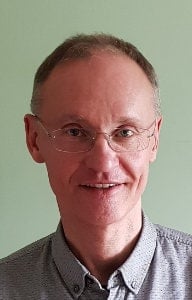
PhD in Polymer Physics (University of Bristol), Dipl-Phys. (RWTH Aachen) and Part II Theoretical Physics (Cambridge University)
Managing Director at Goldbeck Consulting Ltd (GCL), offering services focussed on increasing industrial impact of materials modelling. GCL is project partner in a range of EU projects including OntoTrans, OntoCommons, MarketPlace, VIMMP, OYSTER, OpenModel and NanoMECommons
Co-author of the European Materials & Modelling Ontology (EMMO)
Founding Member and Executive Secretary of EMMC ASBL
Materials Modelling and Digitalisation: a core technology in a post-COVID world
The COVID pandemic has highlighted and amplified shortcomings as well as strengths of modern society: its vulnerabilities to disruption of a world with global interactions and supply chains on the one hand and its ability to adapt quickly and offer solutions in response to the challenge on the other hand. Our way of working had to change as a result and there are likely to be long lasting transformations ahead. The pandemic has also reinforced the urgency and desire to address sustainability challenges and put even greater emphasis on the actions outlined e.g. in the European Green Deal.
These developments are set to continue. The longer society is subject to pandemic control measures, the more digitalisation is expected to grow, and the more important digitalisation will become for companies and society. Both individuals and organisations have come to realise the benefits and opportunities of a more digitally connected and digitally driven world, reducing the need to physical travel, saving time and resource on commuting and in many cases the ability to carry out substantial work for example in R&D by means of a computational, model-based approach.
In all of these aspects, materials and our ability to understand and utilise their behaviour play a central role. Below, we elaborate some key points that underline the strategic importance of materials modelling and digitalisation as key enablers of solutions to societal challenges in European post-COVID society. [...]